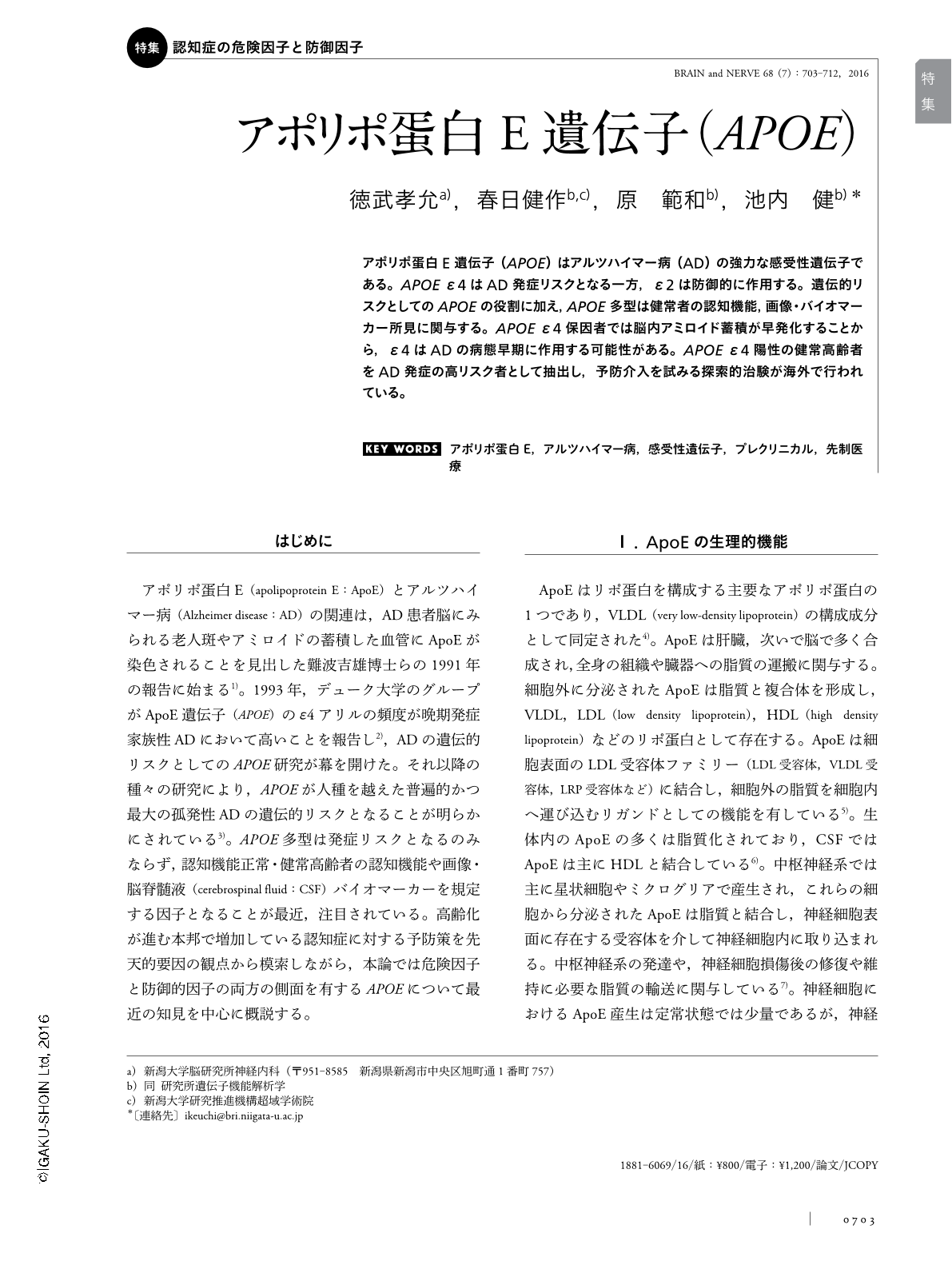Japanese
English
- 有料閲覧
- Abstract 文献概要
- 1ページ目 Look Inside
- 参考文献 Reference
アポリポ蛋白E遺伝子(APOE)はアルツハイマー病(AD)の強力な感受性遺伝子である。APOEε4はAD発症リスクとなる一方,ε2は防御的に作用する。遺伝的リスクとしてのAPOEの役割に加え,APOE多型は健常者の認知機能,画像・バイオマーカー所見に関与する。APOEε4保因者では脳内アミロイド蓄積が早発化することから,ε4はADの病態早期に作用する可能性がある。APOEε4陽性の健常高齢者をAD発症の高リスク者として抽出し,予防介入を試みる探索的治験が海外で行われている。
Abstract
Numerous epidemiological studies have shown that the apolipoprotein E gene (APOE) is a strong genetic risk factor for Alzheimer's disease (AD) among people from various ethnic backgrounds. ApoE occurs as three isoforms that differ at two amino acids residues (112 and 158): ApoE ε2, ε3, and ε4. The ε4 allele is responsible for a genetic predisposition to AD, increasing the risk of AD by approximately 4-fold compared to the common ε3 allele. In contrast, the ε2 allele shows a protective effect against AD. APOE ε4 is known to affect the age at onset of AD in a dose-dependent manner. In addition to the role of genetic risk, increasing evidence suggests that the substantial effects of APOE genotypes on cognitive function, imaging and biomarker findings, have been reported in cognitively normal individuals in an age-dependent manner. A high frequency of amyloid deposition among cognitively normal, aged individuals carrying the APOE ε4 allele has been demonstrated. This suggests that APOE ε4 facilitates amyloid deposition during the very early phase of AD pathogenesis. Preventive intervention by using disease-modifying drugs is now being investigated through an exploratory clinical trial for the cognitively normal, aged individuals with the APOE ε4 allele.

Copyright © 2016, Igaku-Shoin Ltd. All rights reserved.


